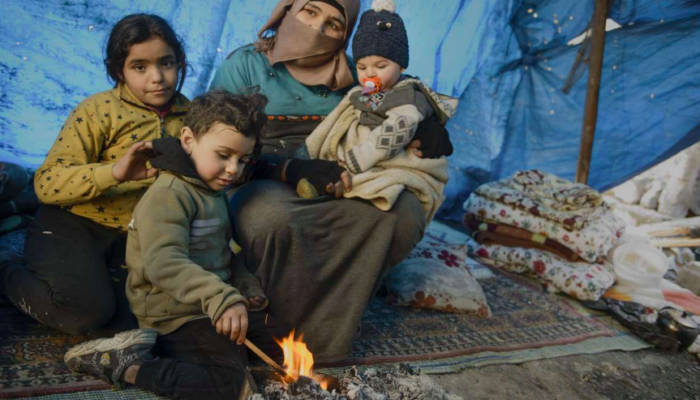Mohammad Kanfash on the sanctions and donors’ conditionality on humanitarian aid in Syria

Why was it needed to organise sessions on the sanctions and donors’ conditionality on humanitarian aid in Syria?
Humanitarian organizations active in Syria grapple with a myriad of challenges and operate in a very complex and, at times, dangerous environment. Throughout the conflict some of these challenges, such as access restriction and denial, have captured the attention of policy makers, practitioners and experts. While definitely deserving of attention, the focus on these challenges has quite often crowded out necessary interest in the systematic and negative impact that sanctions have on humanitarian work. Talking about the impact of sanctions and the necessary shift in the international communities response to the on-going crisis was a taboo for a long time. This has meant that for a very long time the negative impact of sanctions, which is abstract and hidden behind statistics and numbers, remained overlooked, as well as and donors’ conditionality / redlines on NGOs and hence it escaped and official scrutiny/examination.
The last couple of years have been especially harsh for Syrians. The situation in the country has reached unprecedented levels with millions of civilians facing starvation and hunger and at need of humanitarian assistance. Future prospects for the situation in Syria are anything but hopeful due to funding shortages and shifting donors’ priorities. Dialogue and action is now needed more than ever.
Moreover, in the wake of the Feb-earthquake in 2023, there was confidence among policy makers that the humanitarian exemptions that were introduced would facilitate the work of humanitarian organizations, which was the case to a certain extent; however, the reality has proved more complex, as reported in the first session that was hosted by KUNO in October last year. In conversations with colleagues working in Syria and the neighbouring countries, the picture that transpired was different from the one that we hear in the official discourse. Hence there was a need to bring practitioners, experts, and policy makers together to explore challenges, bottlenecks and potential ways forward for humanitarian practice in Syria.
Lastly, in light of the recent EU’s policy with regards to sanctions policy and inclusion of standing humanitarian carve out which has so far not included Syria, the sessions were important opportunity to stress the importance of well-informed and standing humanitarian exemptions.
What did the participants learn / hear during the sessions?
The discussions were frank, constructive and, hopefully useful.
There was a general consensus that the sessions were important for the various stakeholders to exchange information, clarify perspectives, build a common understanding of the issues at hand, and bridges gaps between the practice and policy circles.
Importantly, the sessions were an opportunity for the participants to learn about each other’s work, and to establish contact for future follow up.
Can you describe the key learnings in a few sentences?
To sum it up, it was stressed that there is a need for more multi-stakeholder technical dialogue and discussions to inform policies and identify solutions.
Harmonizing and socializing exemptions, let alone making them well-framed, were also stressed as very important steps towards facilitating a principled humanitarian response in the hard-hit country.
Additionally, and without losing sight of the very risk of and concerns about aid diversion and misappropriation, experts and practitioners on the ground did stress the need to include an early recovery component in the current humanitarian response in order to better support the resilience of people in Syria and to prevent the situation from further deteriorating.
Finally, new innovations in the fields of digital payments may offer a (partial) solution to some of the sanction-related problems, albeit it is early to tell.
What will you personally take with you from these sessions?
It was particularly encouraging to see that the participants were genuinely interested in engaging in a constructive and informed dialogue to better improve current policies and find solutions to problems that affect millions of Syrians. This is a great motivation to continue to invest and engage in this topic.
What’s next?
So long the problem persist, we need to continue working on these issues. Awaiting ongoing conversations around the 8th Brussels Conference on Syria and its outcome, and in consultation with experts and practitioners, follow up will be planned accordingly.
